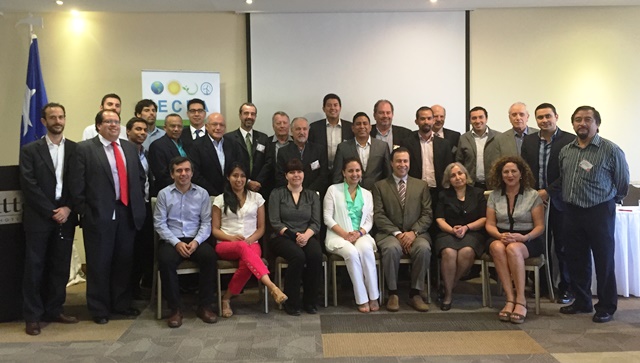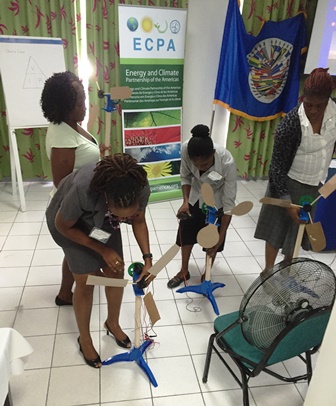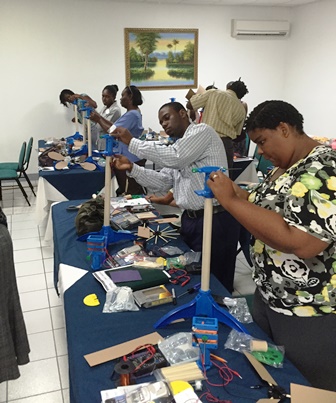Chaired by the Government of Mexico, the ECPA Energy Efficiency Working Group provides technical assistance and advice to governments of the Americas in the advancement of their energy efficiency and conservation goals since 2011. This Working Group convened in excess of 30 workshops, seminars and technical exchange meetings. More than 650 government officials attended these gatherings to enable experts from the region to address myriads technical, financial, legal and policy-making aspects linked with achieving national and regional energy efficiency and conservation efforts in the residential, government, industry, education, and trade sectors and civil society. More than 30 OAS Member States participated in these events either to receive or to transfer best practices, lessons learned and expertise in the most diverse and intricate fields of energy efficiency and conservation. For its final technical assistance round, the Working Group hosted four events in Chile, Saint Lucia, and Antigua and Barbuda.

In Chile, a seminar on energy management systems and the implementation of ISO 50000 was held on March 10-11, 2015. A total of 16 Latin American and Caribbean countries participated in this meeting with the aim of seeking ways to improve energy performance in the private and public sectors. Discussions revealed that limited awareness and inadequate auditing, certification and accreditation capacities act as main barriers to deploying effective energy management systems in the region. The Energy Efficiency Division of the Chilean Ministry of Energy requested a seminar to advance on the development of smart Grids, which was held on March 11-13. The gathering facilitated exchanges on progress in smart grid development among ten Latin American and Caribbean countries. Participants noted that although not every model and international experience is transferable, regional experiences are helpful to outline the action that each country can pursue.

A third meeting on energy efficiency standards for electrical appliances took place in Saint Lucia on March 16-17. Among other conclusions reached at the event, participants agreed that CARICOM energy users would derive great benefit from a Bureau of Standards with strengthened technical competence on energy efficiency measurements. Mandatory regional energy standards and labels would ensure that energy efficiency performance of all products be inspected upon import. This practice would have a significant impact on the regional electricity market.


Finally, Antigua and Barbuda held a fourth activity in this final technical assistance round of the Energy Efficiency Working Group ¾a seminar on energy literacy in schools¾ on March 18-20. The importance of integrating energy efficiency and renewable energy into school curricula was highlighted. The meeting offered an opportunity to present the “Learn and Save” teaching materials developed by the Department of Sustainable Development of the Organization of American States on this subject.
In addition to enabling technical exchanges, in 2015 the Working Group produced four case studies geared toward assessing specific policy making and institutional challenges facing governments of the region seeking to strengthen their energy efficiency frameworks. Institutional, technical, policy and legal analyses were produced in Chile, Dominican Republic, Guatemala and Honduras. The four countries boast a genuine commitment to take action to advance energy efficiency and conservation. The study highlights their weaknesses, strengths, challenges and opportunities in this endeavor.





 View Map
View Map